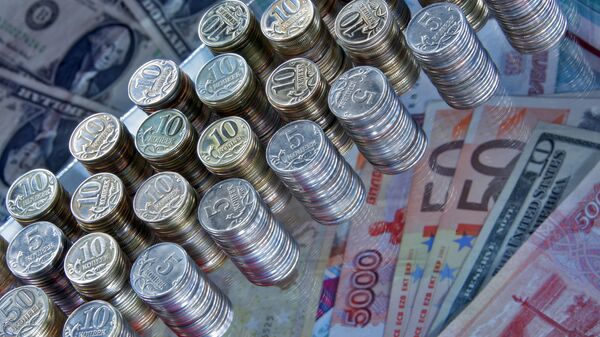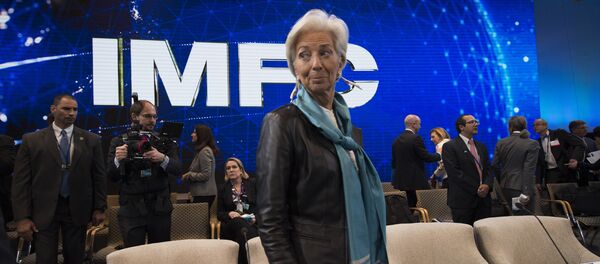The World Bank's assets are being directed to fund reforms beneficial to transnational corporations, including those from the US, Vasily Koltashov, director of the Institute of Globalization and Social Movements' Center for Economic Research, told Sputnik, commenting on Russia's refusal to participate in the financial institution's additional capitalization.
The World Bank as well as the other institutions of the world's financial system — the International Monetary Fund (IMF) and the World Trade Organization (WTO) — were founded on the principle of free trade. It was expected that politics would never interfere with the economy in any way and that countries that adopted the principle of economic openness would cooperate with each other while the IMF and WTO would help them implement appropriate reforms.
For its part, the US does not consider it necessary to follow any rules: Recently, Washington has adopted a protectionist approach, violating the free trade principle and unleashing a trade war on China. Under these circumstances, the World Bank and the IMF are losing their relevance.
"Russia should use its money to solve its own problems," Koltashov opined. "This is pure insanity to fund international institutions that not only do not work, but are hostile to [Russia]"
On April 21, World Bank shareholders approved the decision to bolster the financial institution's lending capacity by $13 billion. The decision was justified by the need to tackle new challenges, such as climate change, refugee crises and pandemics, World Bank President Jim Yong Kim said, as quoted by Deutsche Welle.
According to Russia's Deputy Finance Minister Sergei Storchak, Russia refused to invest further funds within the framework of the World Bank Group's (WBG) new initiative, citing its doubts regarding the efficiency of the bank's credit policy and suggested that the institution's strategy could alienate China and India, the bank's most reliable borrowers.
The US has also signaled its unwillingness to participate in the World Bank's further capitalization, referring to the low efficiency of projects funded by the financial institution.
"There are fewer and fewer of those wishing to support the World Bank in its current form," Belyaev said. "It's like pouring a new wine into old wineskins: the wine will burst the skins and spill out."
Since the current model of the global financial structure has outlived itself, it may lead to a reorganization of the IMF and the International Bank for Reconstruction and Development (IBRD), operating in tandem with the World Bank, observers believe.
The views expressed in this article are solely those of the contributors and do not necessarily reflect the official position of Sputnik.




